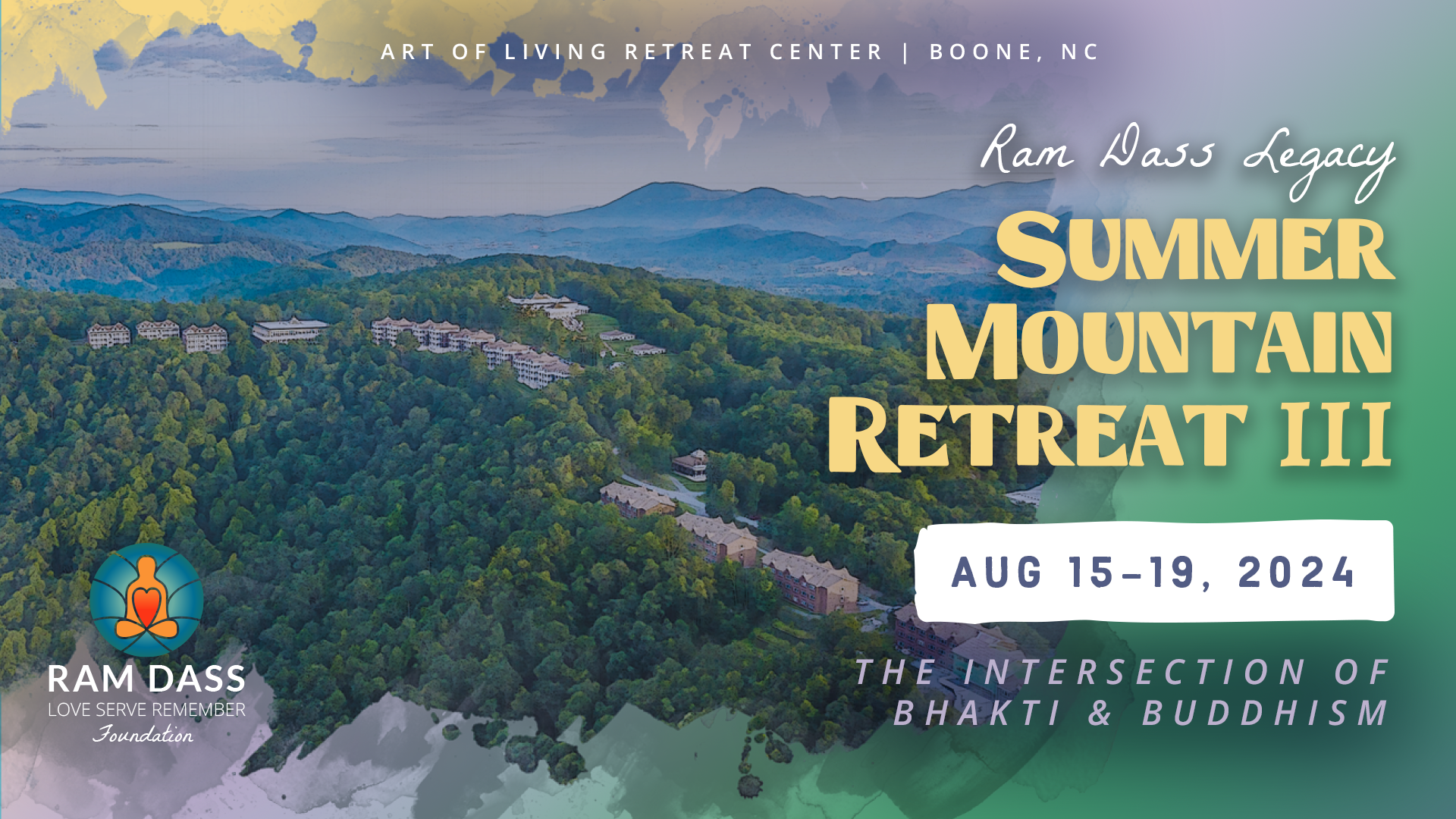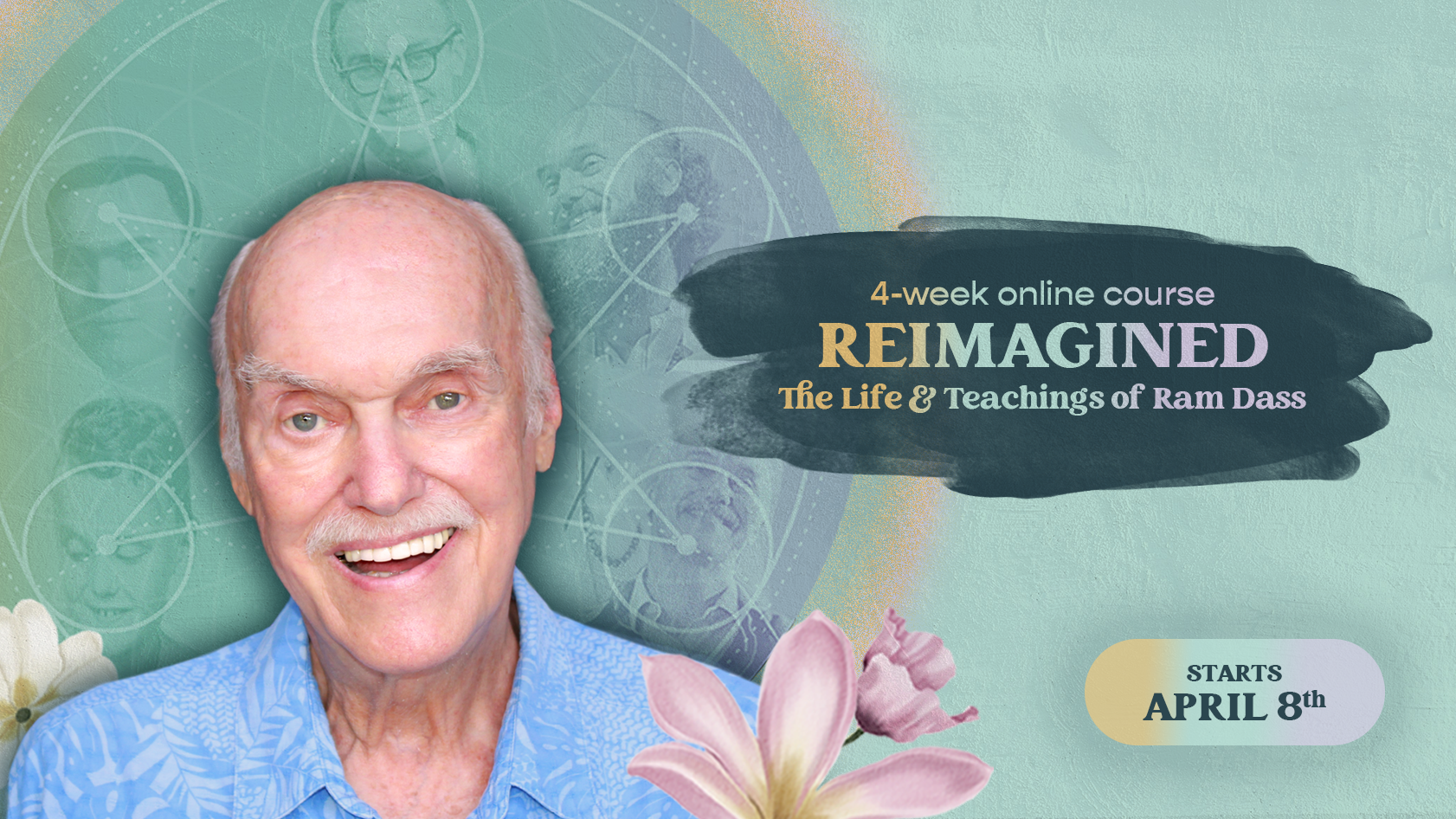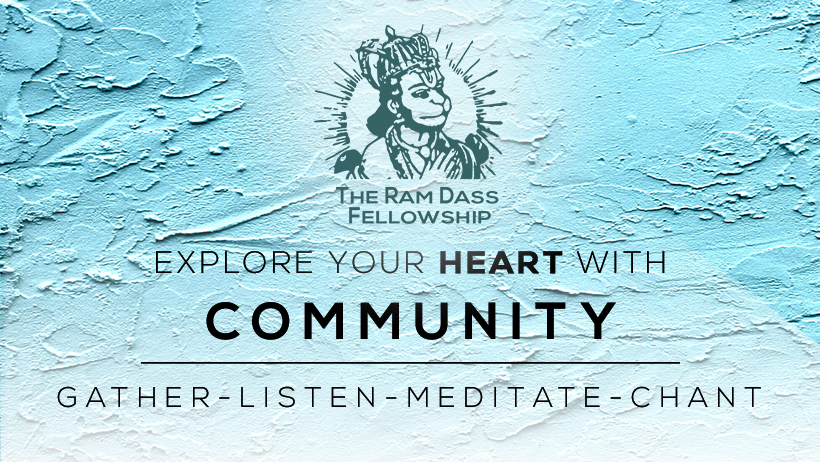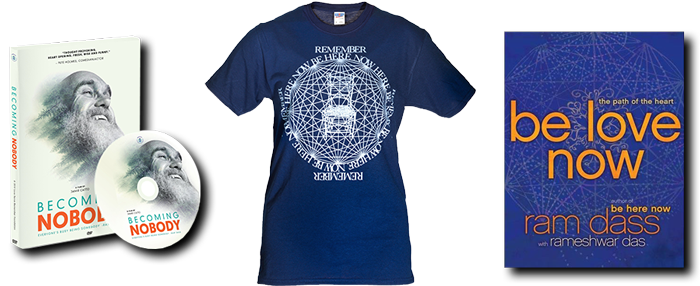From the 2013 Open Your Heart in Paradise Retreat in Maui, Hawaii.
Ram Dass: I was present in India, standing next to Maharaji, and a young woman came up to stand in front of him. And she said "I have so much suffering in my life. So much suffering, Maharaji. From a little child to this time, I've had suffering, suffering, suffering."
Maharaji said, "Suffering brings me so close to God."
Can you hear that? When I see people who are suffering they are thrown into their hearts, and they've come out of their egos because they've gone to the ground of being.
Jack Kornfield: It's no longer individual. It's really clear that it's us and that no amount of outer technology, no amount of computers and biotechnology and nanotechnology and all of these things is going to stop continuing warfare and racism and environmental destruction. What's called for on the Earth at this time is really a change of heart. We are a nation, as one of the great generals said, of nuclear giants and ethical infants.
And the question then, we can sort of try to solve it in some, you know, scientific or political way - the question really is not the future of humanity, as someone said, but the presence of eternity. And I think people come to speak to you [Ram Dass] and listen because they want to step out of time, and get a sense of the vastness that we as human beings come in human incarnation, this mysterious thing where you get a human body: these eyes and ears and funny little hole at one end in which you stuff dead plants and animals and glug them down through the tube several times a day.
I mean, it's bizarre. I don't know how you got in there, right? You know, and if you don't think that's bizarre, pay attention the next time you're making love. And it's a fantastic thing to do, but it's weird. It is, really...
So we have this human life and people come and they listen to you [Ram Dass] because something in your heart and your spirit is tuned not just to the roles, as you said, but to the sense of eternity, to something that's so much bigger. And it puts the soul and the spirit really illuminated in the center of what we have to navigate.
And what you have to navigate is joys and sorrows and gains and losses and pleasure and pain. Anybody not have that? You have that. And then, you have these amazing practices and trainings that really turn your heart or your consciousness or your being to remember who you are, that you're not the body or you're not the roles.
One Rabbi in the Jewish mystical tradition taught his disciples to memorize, reflect, contemplate and place the teachings of the Holy words on their hearts. And one day, a student asked the Rabbi why he always uses the phrase on your heart and the master replied, Only God can put the teachings in your heart. Here we recite and learn and practice and put them on the heart, hoping that someday when your heart breaks, they will fall in.
Ram Dass: That's lovely. That's lovely.
And so we learn these practices, some of us for years or decades and so forth. And then they become the guide for us, both in beautiful times and in difficult times. And the theme for this retreat of suffering and grace in the Buddhist tradition, in certain cultures, they actually pray for suffering and losses: Grant that I have enough suffering, that my heart really opens to the great compassion of this world, that I be given enough so that I don't wall myself off from the world, that it breaks down the heart and the separation and the ego and the fear, and that it lets me touch the nectar, the milk of life and kindness itself of something greater.
And Milarepa, the great and beloved saint of the Himalayas, most beloved of all the Tibetans, he says in one of his songs, "I, yogi Milarepa, resting in the clear light, meditating on emptiness. When I get difficulties come, I feel extremely well when the highs roll into lows, as a yogi, even better still, I feel so good to be a human being. When confusion gets complicated, I feel extremely well. Fearsome visions, worse and worse. Better still, the bullies and demons. Worse I feel even better. Painful illness and I dance. How better still? The suffering turning to bliss feels good. That even bad is beautiful because it opens my heart to the sacred, to the whole, to leap and run about and dance is wonderful, to be the king of speech, the treasure of the world. But the treasure of the world is not to turn your gaze from the tears of the world, and to let them water your heart."
And so here we are, you know, in this time of both beauty and joy and suffering and grace.
Ram Dass: Suffering and grace.
Jack Kornfield: ...So there's a way in which spiritual practice can be taken on as a kind of grim duty. "Okay, I have to go to the gym and I have to work out and I better, you know, do some therapy and also meditate," and so forth, kind of self-improvement.
It's like that passage from Florida Scott Maxwell, where she writes, "No matter how old a mother is, she looks at her middle-aged children for signs of improvement." So we're kind of using our spiritual practice in some way maybe to improve the personality and so forth. And then it becomes a kind of struggle, or it can be used to judge ourselves rather than really coming from the deepest place of love.
And yet, when I see these people go to visit the Dalai Lama, and there's, you know, 10,000 or 50,000 people, they go for the teachings, these beautiful teachings. But I don't think that's really why they go. I think they go to hear him laugh. This man who carries the loss of Tibetan culture and the burning of the temples and the struggles of his people, and also as a world figure, can sit there and have a laugh that the whole room kind of lights up.
And I think people come to see you [Ram Dass] smile. They come for all this light that comes out of your heart in the middle of the fire. And I just wonder if you would say something about grace or joy and sorrow.
Ram Dass: When I got to Maharaji, it was grace in my life. Everything was a stepping stone to God. And you've probably seen some of that, that I have a stroke, my body has a stroke. I don't have a stroke. I am infinite. And I had a stroke, and I said to Maharaji, he was dead by then, I said to him, "You've given me so much grace. Did you go out to lunch?"
And he just beamed. He said, "Just wait. Just wait." And I waited.
The stroke prevented me from outside entertainment. I couldn't play my cello. I couldn't drive my sports car. I couldn't golf. I couldn't take walks. And that forced me to do one thing. I couldn't do outside things. So what happened? I started inside. I started inside my spiritual heart. And there were riches in there that I couldn't believe.
Do you realize that within you, there's peace, wisdom, compassion, love, and joy?











A Mahatma or a master born in a given age is meant to suit that age for its evolutionary growth.
India is fortunate to have the Mahatma-s time and again to guide the given generation to crow-bar up a little in its moral and ethical calibre.
Salutations at their Lotus Feet !